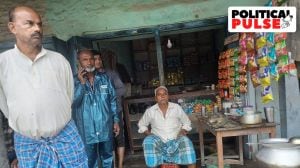Supreme Court shifts Sabharwal trial to Maharashtra
Underlining that courts cannot afford to be mute spectators to severe pitfalls by the prosecuting agencies or the prosecutor in a trial...

Underlining that courts cannot afford to be mute spectators to severe pitfalls by the prosecuting agencies or the prosecutor in a trial, the Supreme Court on Wednesday strongly conveyed to the State, which has a “definite” role to play in protecting the witnesses, “to avert trial getting tainted”. The stern observations came as the Bench, headed by Justice Arijit Pasayat, pronounced a detailed judgment shifting murder trial of Prof H S Sabharwal from Ujjain in Madhya Pradesh to Nagpur in Maharashtra.
“Time has come when serious and undiluted thoughts are to be bestowed for protecting witnesses so that ultimate truth is presented before the Court and justice triumphs and the trial is not reduced to a mockery,” warned the apex court. The Bench, also comprising Justice P Sathasivam, pointed out, “As a protector of its citizens, the State has to ensure that during a trial the witness could safely depose truth without any fear of being haunted by those against whom he has deposed.”
The court, giving a reasoned order for shifting the trial outside MP, accepting the plea by professor’s son, Himanshu Sabharwal, however, refused to accord sanction for ordering re-investigations into the case by the Central Bureau of Investigation.
Pointing that reluctance and hesitation by witnesses to depose against people with money or muscle power has become “the order of the day”, Justice Pasayat said, “If ultimately truth is to be arrived at, the eyes and ears of justice have to be protected so that the interests of justice do not get incapacitated in the sense of making the proceedings before courts mere mock trials as is usually seen in movies.”
It stressed on strengthening legislative measures against tampering with witnesses, victim or informant. “Conducts which illegitimately affect the presentation of the evidence in proceedings before the courts have to be seriously and sternly dealt with,” viewed the Bench.
Reiterating that courts have a “participatory role” to play in the trial by monitoring proceedings so that irrelevant, unnecessary facts are not brought on record, Justice Pasayat asked the sessions court, Nagpur, to choose a Public Prosecutor from the names suggested by the State and son of the slain professor.
The professor in Ujjain college had died on August 26, 2006, after he was allegedly attacked by ABVP leaders protesting against the cancellation of election in the university. Protesting against his decision of cancelling the elections as null and void, some students of Madhav College allegedly attacked him that led to his death.
The Bench while reserving its judgement on March 7 had indicated that it would direct the Sessions Court of Nagpur to complete the trial within eight months.



- 01
- 02
- 03
- 04
- 05




























